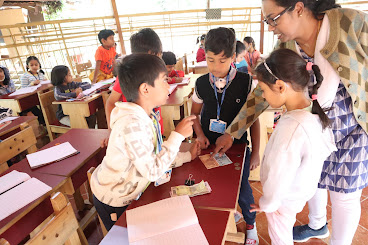Sri Aurobindo's Philosophy of Education
Sri Aurobindo, a visionary philosopher, poet, and spiritual leader, contributed significantly to the field of philosophy of education. His philosophy was deeply rooted in spirituality, and he believed in the integral development of an individual, encompassing the physical, mental, and spiritual dimensions. Sri Aurobindo's educational philosophy is a synthesis of the spiritual and the practical, aiming to foster the evolution of consciousness in individuals.
Integral Development:
Ø Sri Aurobindo's philosophy
emphasizes the holistic development of an individual.
Ø Integral education addresses the
physical, vital, mental, and spiritual dimensions of human nature.
Transformational Journey:
Ø Education is viewed as a
transformative journey rather than a mere process of knowledge acquisition.
Ø The goal is the awakening of
higher levels of consciousness.
Manifestation of the Divine:
Ø Education is seen as a means to
facilitate the manifestation of the divine within each individual.
Ø Aims to guide individuals towards
self-discovery and self-realization.
Integral Education:
Ø Advocates for an integrated
education system that transcends traditional subject compartmentalization.
Ø Addresses emotional, ethical, and
spiritual dimensions alongside intellectual development.
Role of the Teacher:
Ø Teachers are considered guides
and mentors in the journey of self-discovery.
Ø Emphasis on the teacher's role as
a source of inspiration and support.
Experiential Learning:
Ø Sri Aurobindo underscores the
importance of experiential learning.
Ø True understanding arises from
direct experience rather than theoretical knowledge.
Personalization and Empathy:
Ø Encourages a more personalized
form of education.
Ø Teachers understand the unique
needs and potentials of each student.
Global Perspective:
Ø Recognizes the interconnectedness
of individuals with society and the world.
Ø Education includes a global
perspective, fostering a sense of responsibility towards humanity.
Experiential Learning:
Ø Education provides opportunities
for hands-on activities and creative exploration.
Ø Connects students with the world
around them.
Responsibility and Contribution:
Ø Encourages a sense of
responsibility and commitment to contributing positively to humanity.
Ø Students are not only aware of
their local context but also understand global issues.
Ø In conclusion, Sri Aurobindo's
philosophy of education envisions a transformative and integral journey towards
self-realization, emphasizing the interconnectedness of individuals with the
divine, society, and the world. This holistic approach continues to inspire
educators and learners, fostering a deeper understanding of life beyond the
acquisition of knowledge.



Comments
Post a Comment